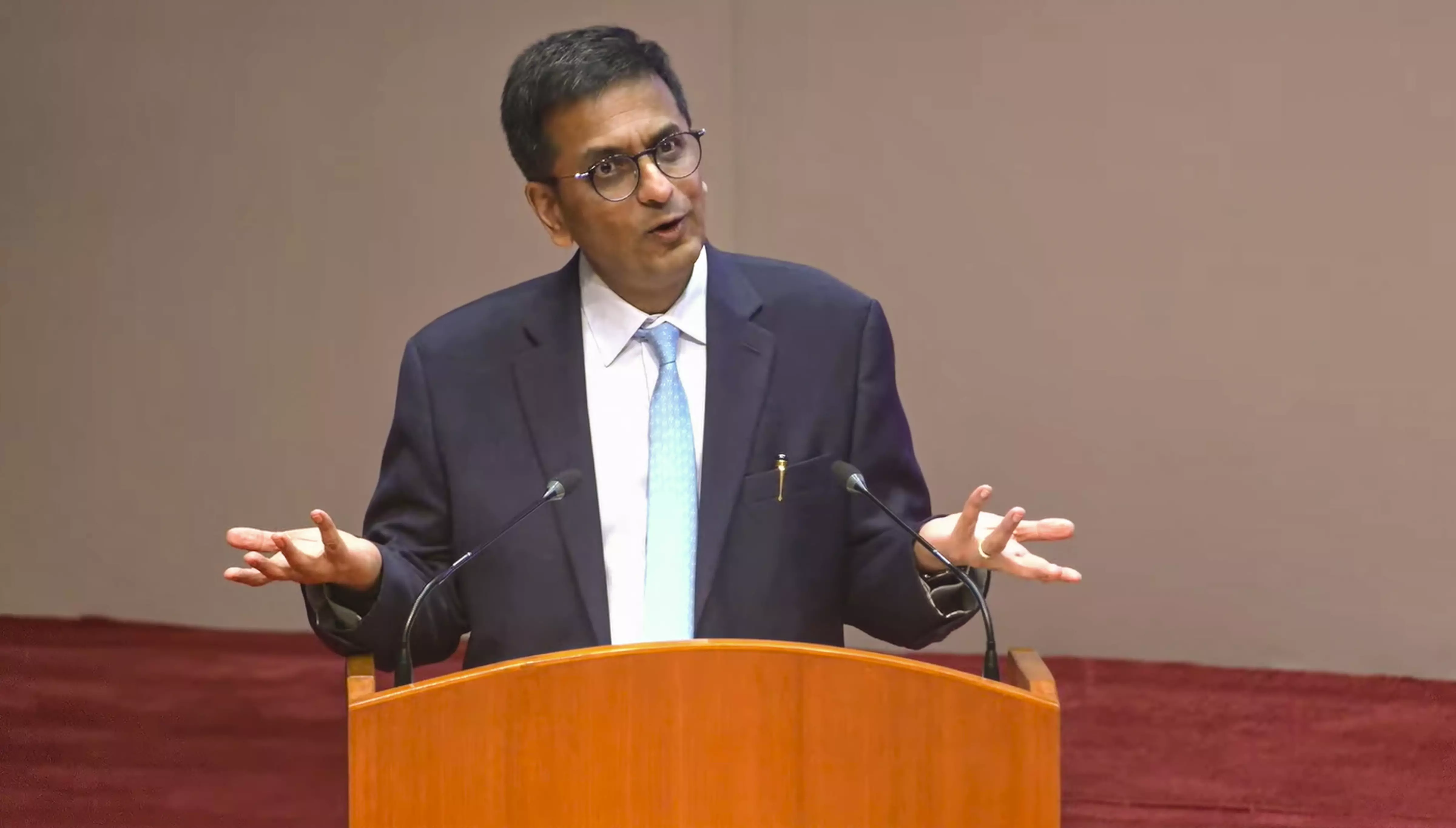
Chandrachud gives 'clarification' on ‘Babri Masjid desecration’ remark
On the Ayodhya case, the former CJI says it was decided not on the basis of faith but on evidence and legal principles

Former Chief Justice of India DY Chandrachud has clarified that his recent remark that the “erection of the Babri Masjid was a fundamental act of desecration” was taken out of context and added that the Ayodhya case was decided on evidence and legal principles, and not on the basis of faith.
At the India Today Conclave in Mumbai on Thursday, Chandrachud said on Thursday (September 25) that on social media, people were completely removing the context of what he said during an interview.
Ayodhya case verdict
“What is happening on social media is that people lift one part of the answer and combine it with another part, completely removing the context,” Chandrachud said.
On the Ayodhya case, he said it was decided not on the basis of faith but on evidence and legal principles. “The judgment was 1,045 pages long because the case record was over 30,000 pages. Most people who criticise it have not read the judgment. It is easy to post opinions on social media without reading the full document,” he said.
“We must not forget what happened in history. These facts were part of the evidence we considered in the case,” he added.
The Ayodhya land dispute case verdict was delivered by the Supreme Court in 2019 and Chandrachud was part of the five-judge Bench.
Concern over public opinion
He also expressed concern over how public opinion on social media was defining judicial independence. “Unless a judge decides every case according to a netizen’s ideological view, they are not considered independent.”
“Independence is also seen as only deciding cases against the government. But if you decide even one case in favour of the government, you are called pro-government,” he opined.
Stating that his personal faith is inclusive, he said, while serving as CJI, he recited the Navkar Mantra each day, and during his time at the Allahabad High Court, he also visited various religious places, including a dargah, and also church visits during his trips to Goa.
“My belief allows space for others to believe differently. There is nothing wrong in quiet reflection or prayer that helps a judge do justice with an even hand,” he said.

